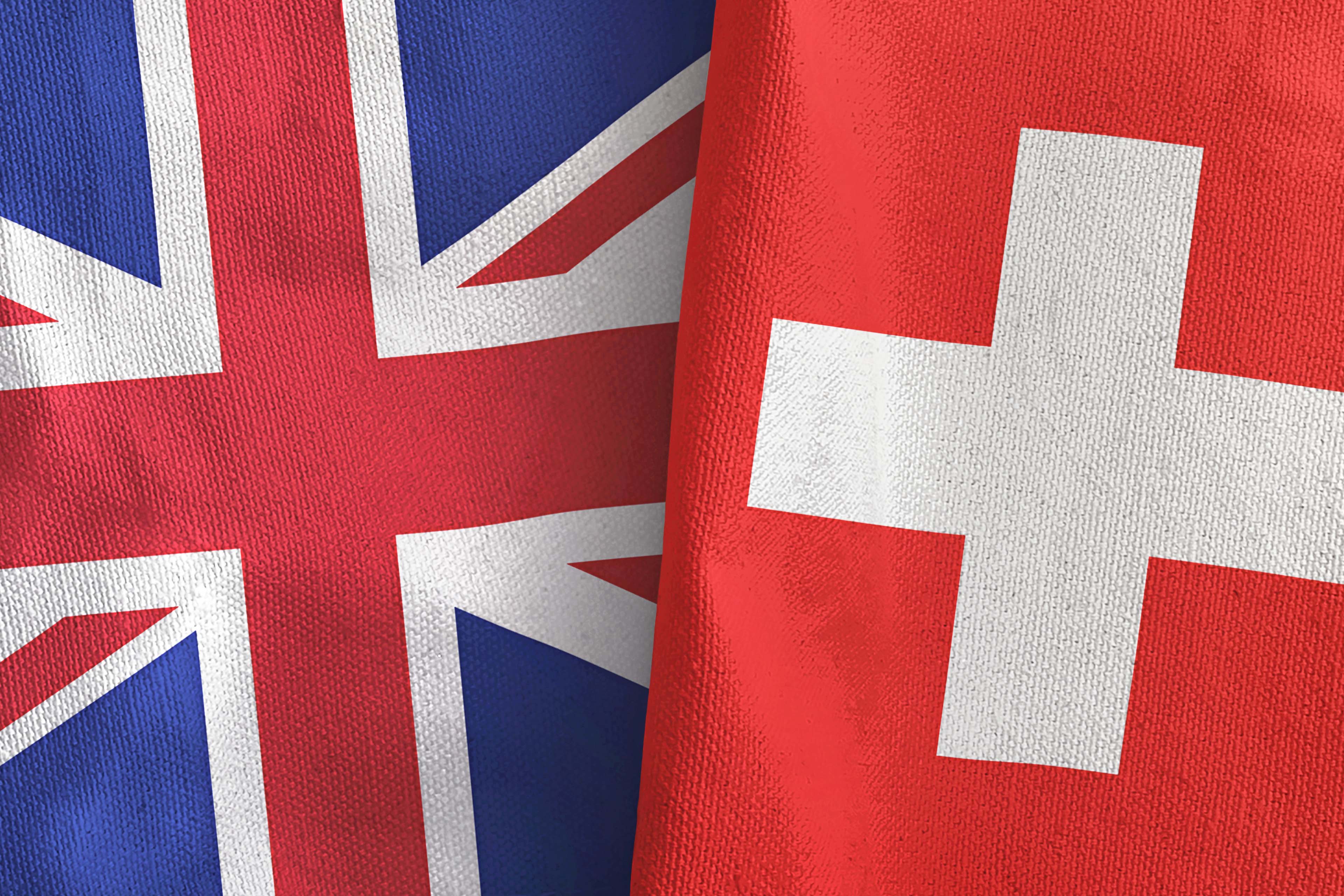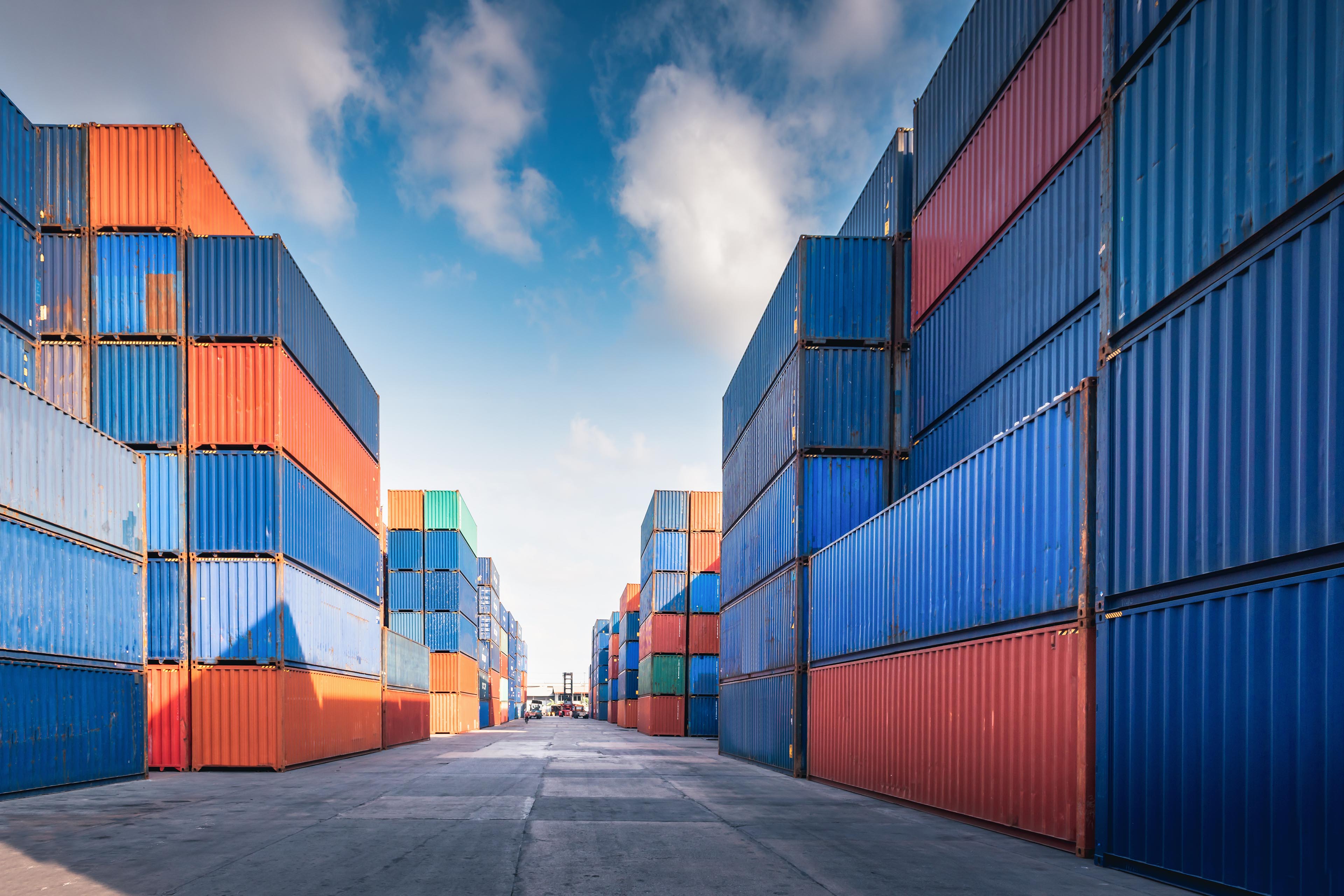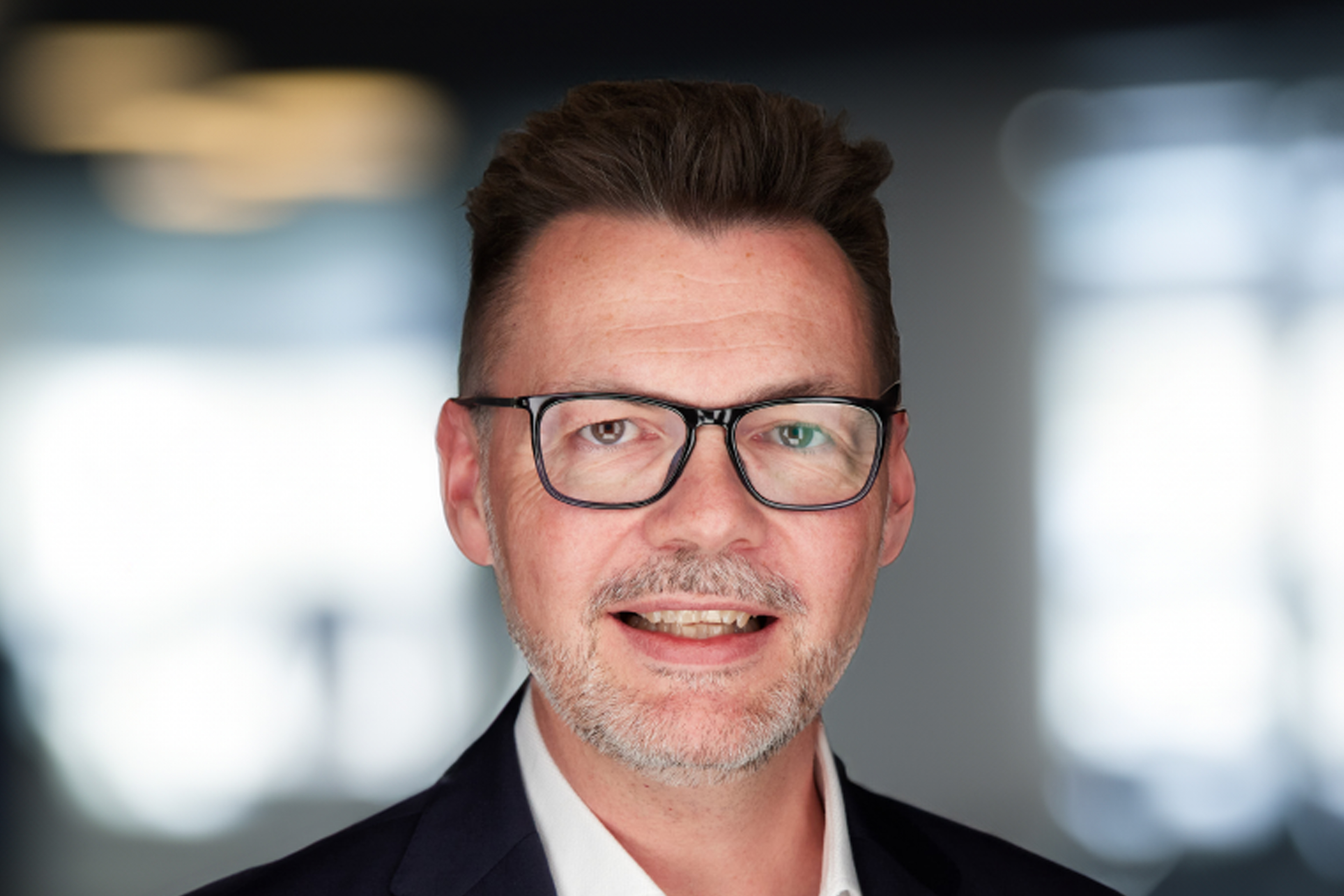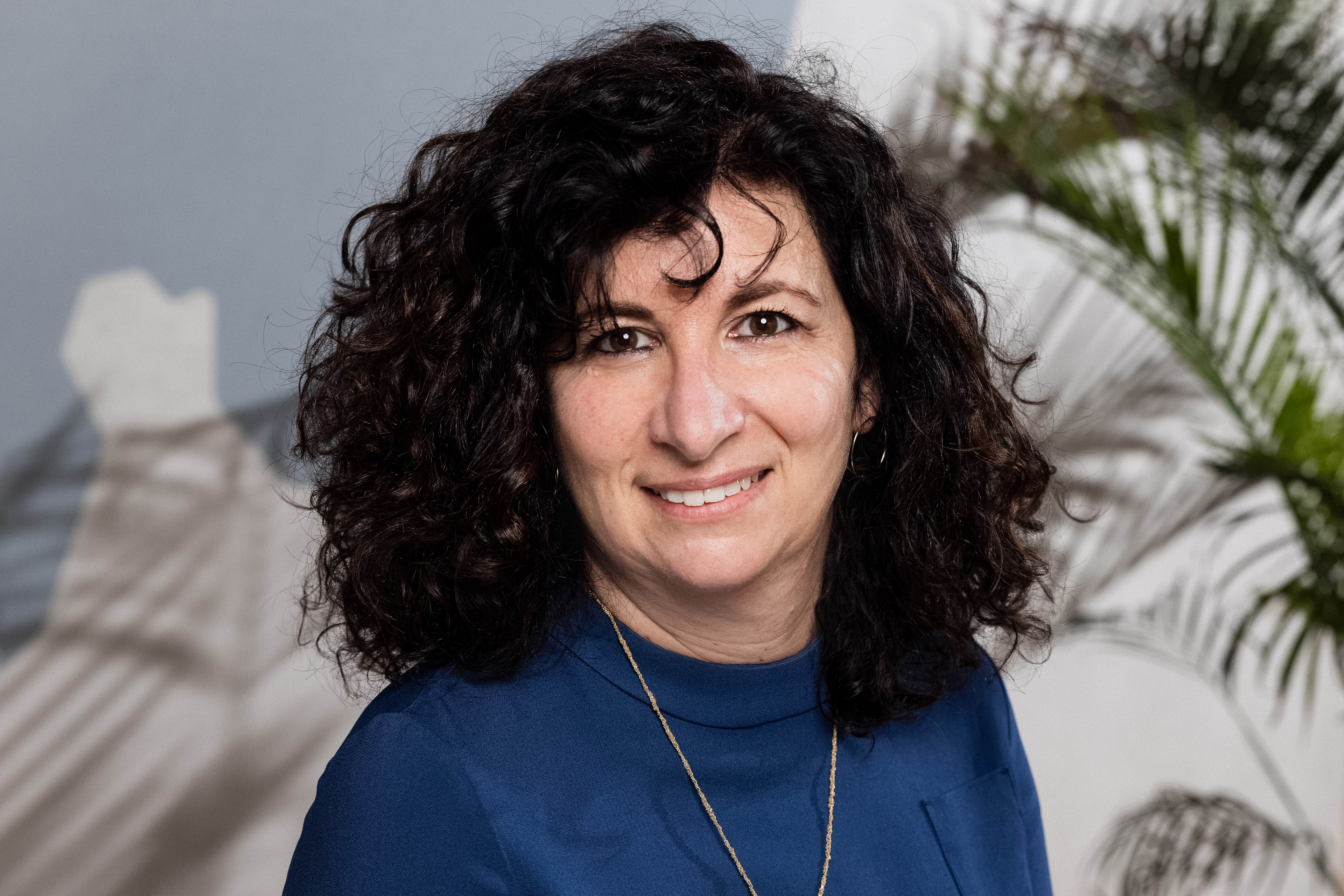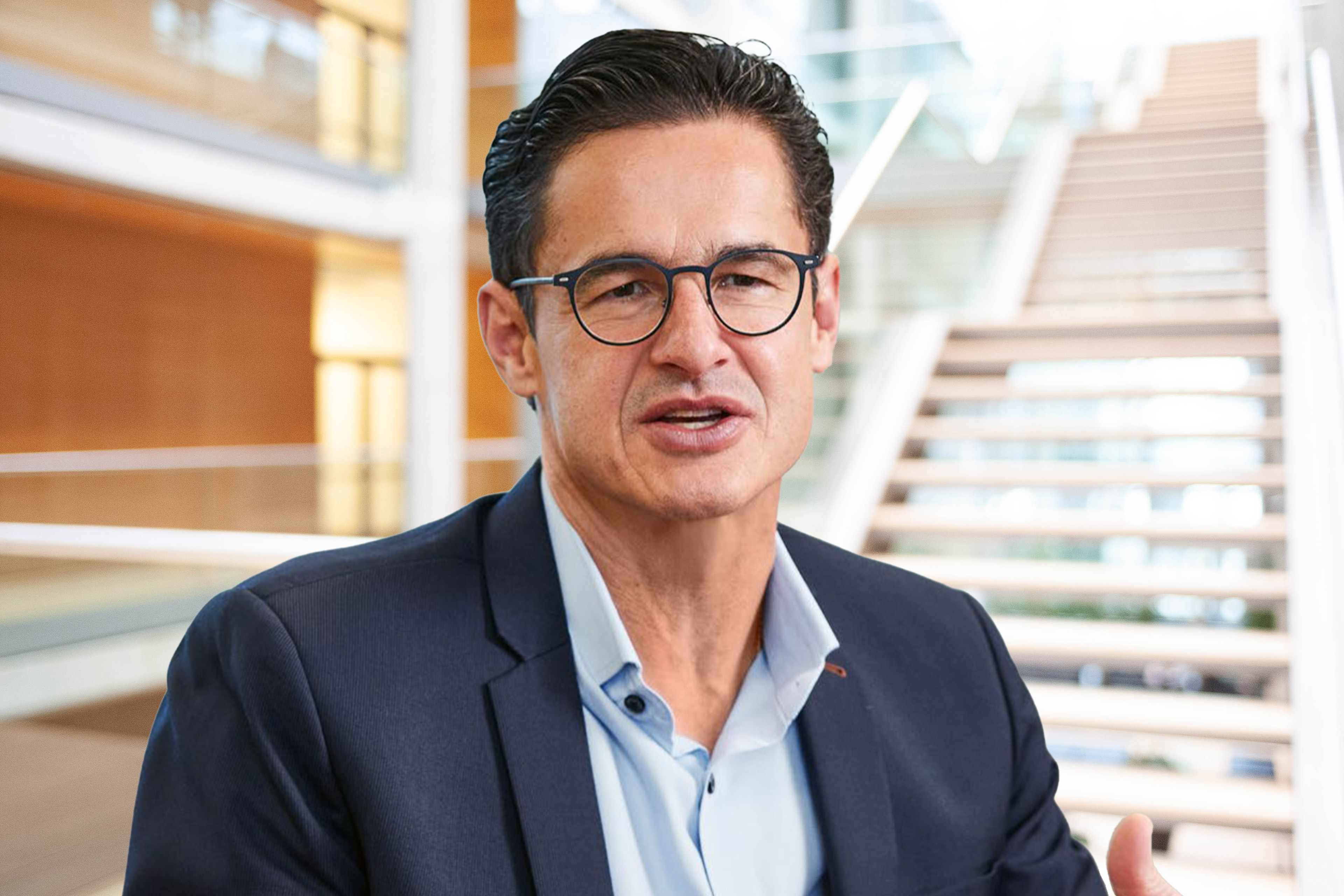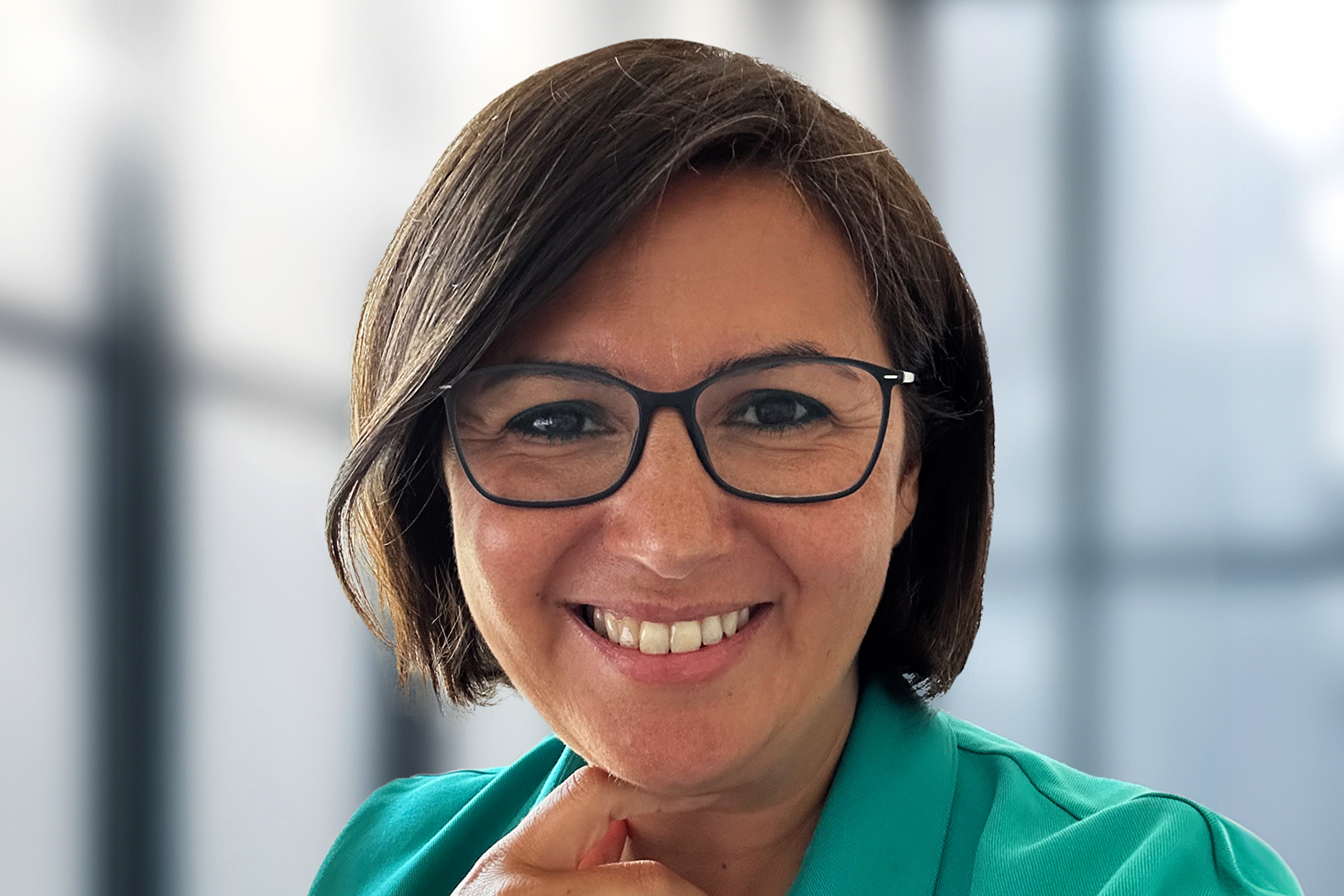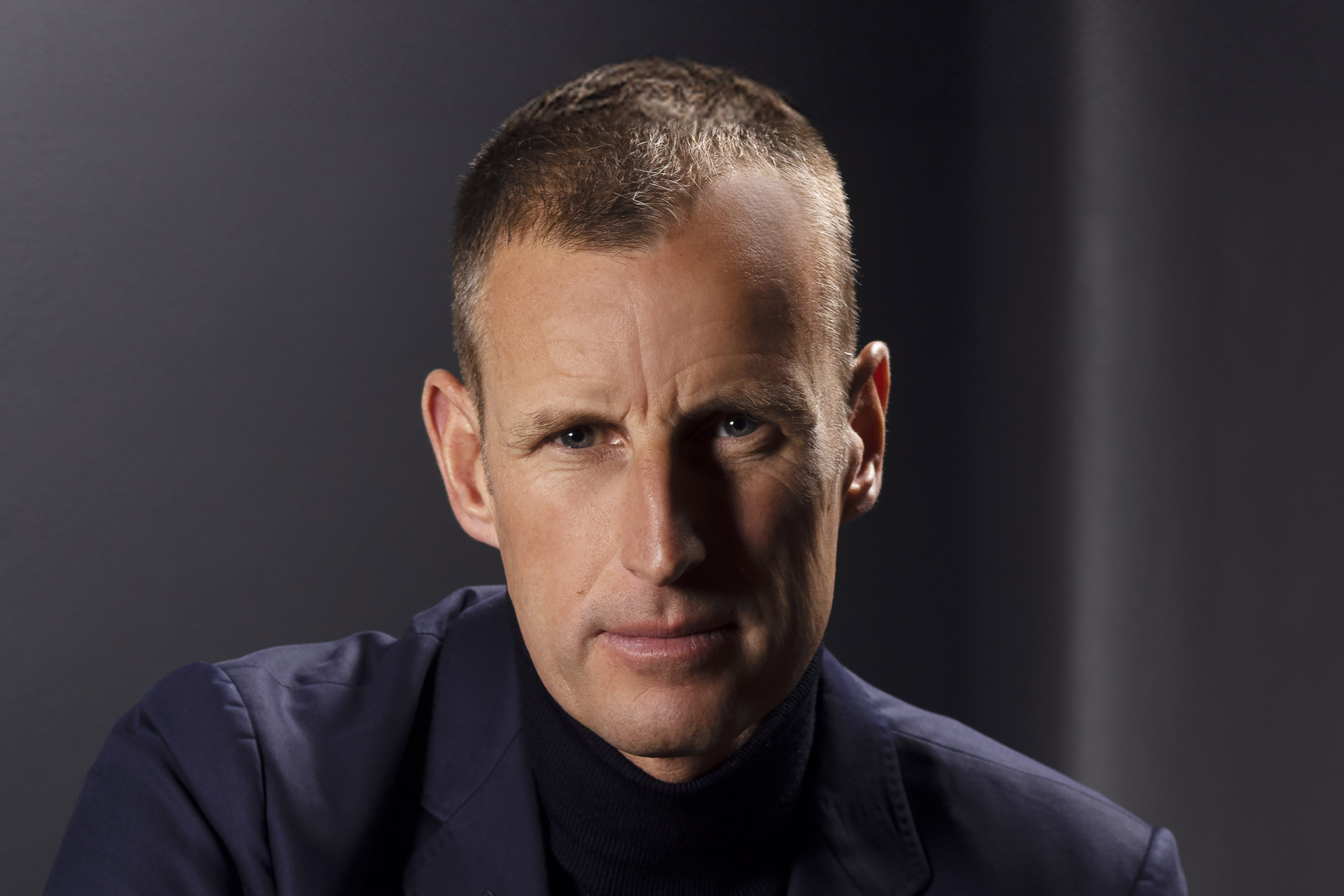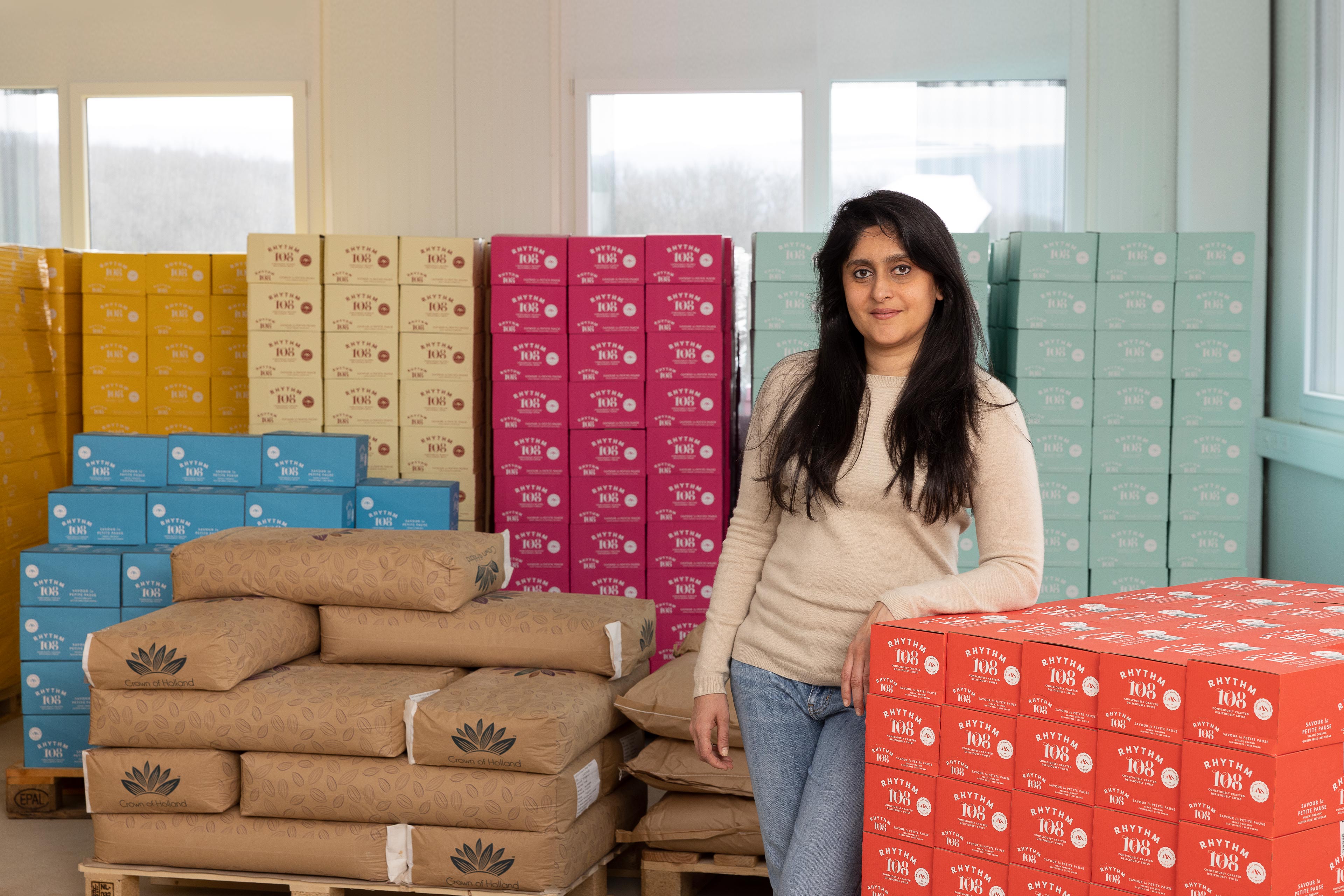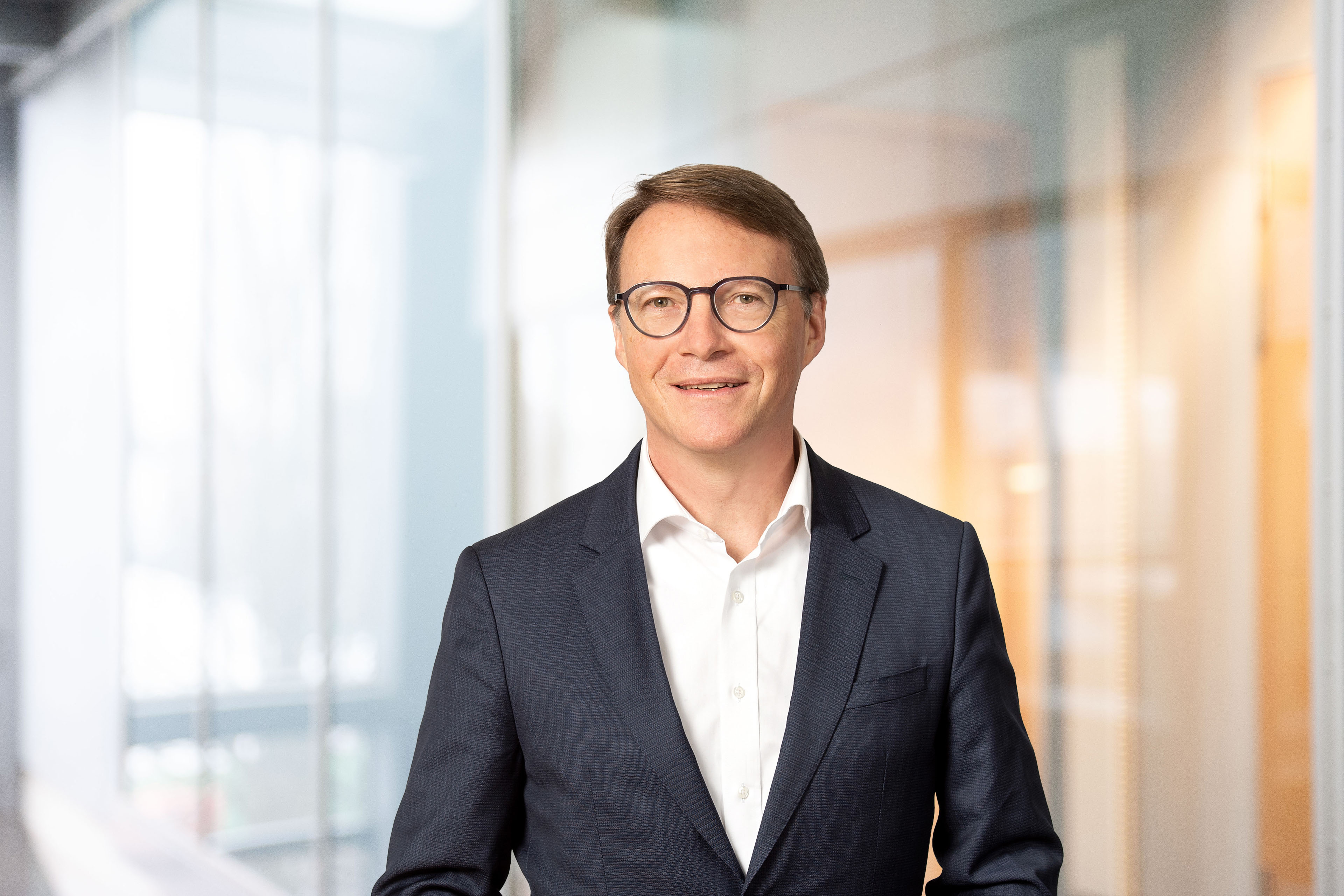EY refers to the global organization, and may refer to one or more, of the member firms of Ernst & Young Limited, each of which is a separate legal entity. Ernst & Young Limited is a Swiss company with registered seats in Switzerland providing services to clients in Switzerland.
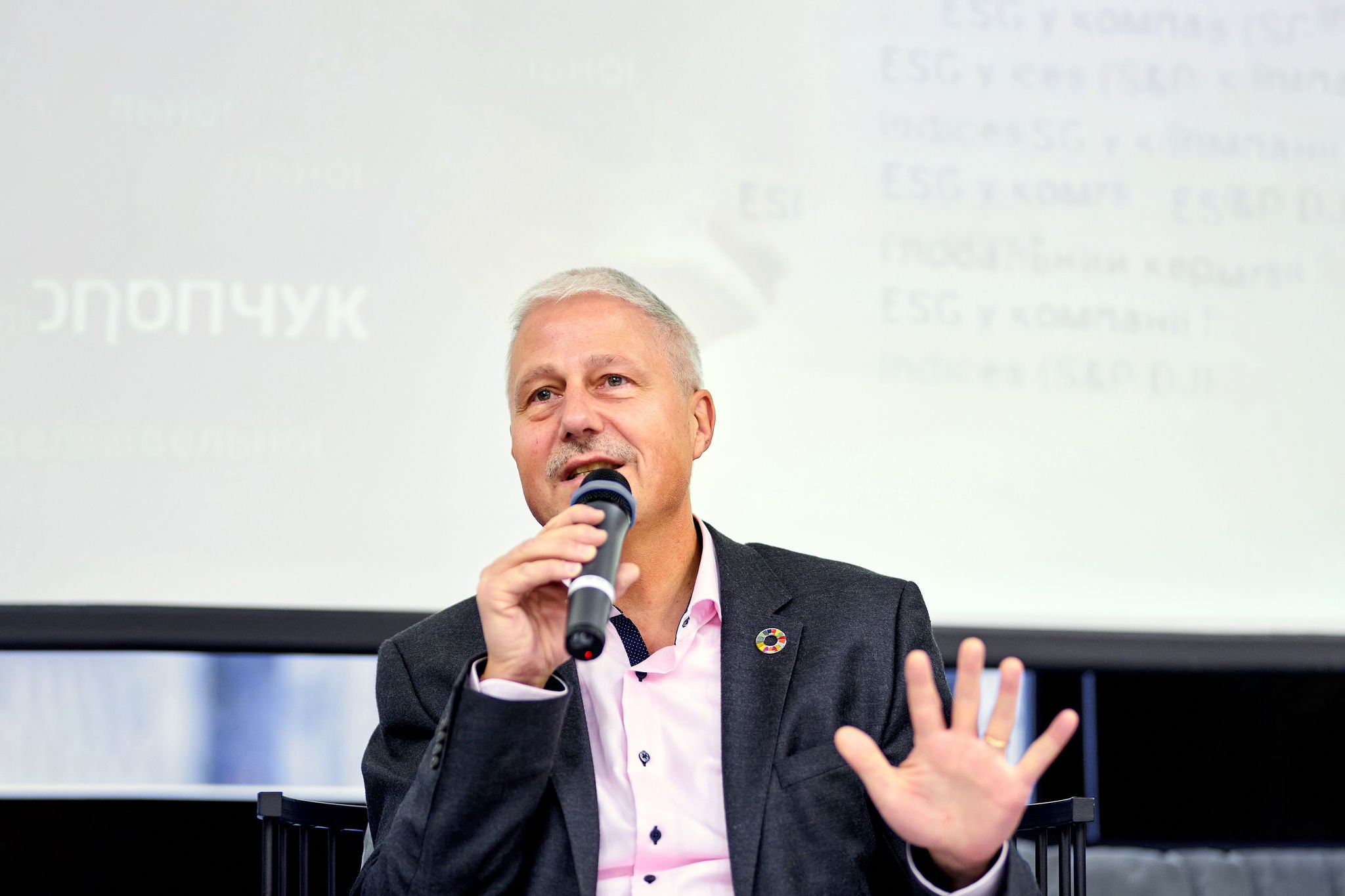
“There is no panacea for sustainable business.
Antonio Hautle
Antonio Hautle has been Executive Director of the UN Global Compact Network Switzerland since August 2015. The network of companies and institutions conducts its business activities in accordance with the Ten Principles of the UN Global Compact and the Agenda 2030 with its 17 Sustainable Development Goals (SDGs). Previously, he was Director of Fastenopfer from 2001 to 2013, then Director of the Administration of the Social Department, State of Lucerne from 2013 to 2015. Antonio Hautle has a background in philosophy, business ethics and Catholic theology and holds an MBA from the University of Geneva.
We met Antonio Hautle, Executive Director of UN Global Compact Network Switzerland. In an animated discussion, he talks about the potential of modern technologies to support a sustainable economy as well as the importance of the Sustainable Development Goals (SDGs) – and explains why a wait-and-see strategy is unlikely to succeed.
How did the topic of sustainable technologies make it onto the UN Global Compact Network agenda?
Through networking. We’ve established contacts with various companies, for example Microsoft Switzerland or EY, but also with a university institute in Geneva. As a result, “sustainable technologies” and all related topics – like artificial intelligence, data handling, or monitoring and tracking of supply chains – have made their way onto our agenda. We see enormous potential in this very broad range of topics to make our world more sustainable. Networks like ours offer the ideal platform to support this development: specialists from the worlds of industry, technology and research can come together here and contribute their know-how.
How important are modern technologies in helping companies operate more sustainably in practice?
Modern technologies are, as a rule, very important for sustainable practices, but it’s the ecosystem that is really crucial. When economic players are connected in a strong network, modern technologies are particularly important. For example, how can a company ensure that its palm oil is really produced in accordance with certifications? Intelligent monitoring of the supply chains is needed for this purpose. And for that, you need technology. Artificial intelligence and blockchain represent a huge opportunity to collect and process the necessary data and information in a sustainable way. Fortunately, the Ten Principles, the OECD Guidelines and the SDGs are now making their way into very many companies. This is increasing pressure and accelerating the shift to a truly resource-efficient economy.
Fortunately, the Ten Principles, the OECD Guidelines and the SDGs are now making their way into very many companies. This is increasing pressure and accelerating the shift to a truly resource-efficient economy.
What technological approaches can companies take?
There is a risk-based approach and a potential-based approach. The risk-based approach determines the greatest risks within an organization and examines whether technologies can help mitigate them. To do this, you have to ask questions like: Could technology be used to get helpful data? Does it make sense to monitor a production site, observing all the data protection and personal rights of the people involved? If this approach is not conducive to the goal, a company can use the potential-based approach to identify dormant potential that can be exploited with technical solutions. However, there is no panacea for sustainable business. This makes it all the more important that different players come together to co-develop solutions. Our network offers a helping hand in this. Thanks to the 17 SDGs of the United Nations, we now have an outline of the key sustainability challenges facing humanity in the 21st century, and we can align ourselves with this.
Can you give an example of how a technical solution leads to a more sustainable economy?
A good example is Nestlé. The food and beverage company monitors its palm oil plantations using satellites (Starling). Based on the satellite images, Nestlé can determine whether the plantations are expanding or shrinking, or whether slash-and-burn is occurring, and act accordingly. Another example is the Geneva-based company Farmer Connect. It uses blockchain to ensure the tracking of entire supply chains in the agribusiness. Migros and Coop also use such solutions. This method also makes sense for clothing. With a code on a piece of clothing, you can track and trace where and how it was produced. I see immense potential in blockchain technology, especially for quality assurance and fraud prevention.
I see immense potential in blockchain technology, especially for fraud prevention.
Why is it important for companies to rely on these modern technologies today?
A strategy along the lines of “let’s wait another five years” is doomed to failure. Market developments are far too dynamic for this. Let’s take the examples of the Dodd-Frank Act and other regulations as well as voluntary initiatives like the Better Gold Initiative. If a tech company wants to export a circuit board containing gold to the USA, it must be able to prove today where that gold comes from if it doesn’t want to be excluded from the market. Several companies in the gold sector joined the Better Gold initiative to find practical solutions. This creates a marked pressure and demand. And that’s where modern tracking technology comes in. At this point, the potential-based approach I mentioned before comes into play again. Companies enjoy an immense advantage if they are viewed as pioneers because they evaluate and adopt novel technologies. In this respect, excellent business opportunities open up within Responsible Business Conduct (RBC) and the framework of the SDGs, provided that you attach importance to innovation and keep your finger on the pulse.
Companies enjoy an immense advantage if they are viewed as pioneers because they evaluate and adopt novel technologies.
Where do you see potential dangers and risks associated with technology?
Advances in technology and the transparency that they entail must not come at the expense of individual privacy – the keywords here being data protection, business ethics and human rights. In the world of social media, for example, we see on the one hand how people voluntarily give away their data, and on the other, we have an extreme concentration of power in a few corporations. Certain other companies with large distribution chains are also using their huge volumes of data to predict consumer behavior. In my opinion, this is irresponsible. Even autocratic states are misusing technology to monitor their entire populations. How do we deal with this? These issues present us with delicate challenges, and all companies, networks such as UN Global Compact, and society as a whole must play their part in finding a solution through shared discourse. Because if we use technology in an economically meaningful, socially responsible and ecologically sustainable way, it no longer poses a danger but becomes a huge opportunity.
Advances in technology and the transparency that they entail must not come at the expense of individual privacy.
Do you feel we are well on the way toward sustainable business?
We are on the right track, but nowhere near where we want to be. Unfortunately, there is still too little focus on the outstanding opportunities offered by sustainable technologies, among other things. This also applies to the UN Global Compact Network. However, we are doing our best to change this. We need to raise awareness of sustainable technologies and seize the enormous opportunity that this topic represents – for economic, environmental and social sustainability that serves people.
We are on the right track, but nowhere near where we want to be.
Featured articles and interviews
Sebastian Tobler, Co-founder and CEO of GBY SA
Sebastian Tobler is co-founder and CEO of GBY SA, which has developed a new approach for the rehabilitation of people with reduced mobility. An automotive engineer by training and trade, Sebastian Tobler’s life took a new direction when a bike accident left him paralysed. Alongside his entrepreneurial activities, he heads the SCI-Mobility Lab as Professor at the Bern University of Applied Sciences.
Originally from Naples where she grew up and studied physics, Luciana Vaccaro moved to Switzerland in 1996 to complete a PhD in microengineering at EPFL. She held various positions in research and education at the universities of Neuchâtel and Lausanne before heading the Grant Office at EPFL. In 2013 she took the reins of HES-SO as rector. Last October, Luciana Vaccaro was elected president of the umbrella organization swissuniversities and started in her new position on 1 February.
Francisca Obrecht, Weingut Obrecht
Peter Rupp grew up in Sargans, Switzerland, around 20km south of the Hilti headquarters in Liechtenstein. He studied Economics in St. Gallen, then took a post-graduate degree in Engineering in Winterthur.
Peter Rupp grew up in Sargans, Switzerland, around 20km south of the Hilti headquarters in Liechtenstein. He studied Economics in St. Gallen, then took a post-graduate degree in Engineering in Winterthur.
Serra Bicak is Senior Vice President Reckitt Africa Middle East at Reckitt Hygiene. She has lived and worked in eight different countries for various roles during her career in fast-moving consumer goods. Serra Bicak is passionate about diversity, equity and inclusion (DE&I) and leads Reckitt Hygiene’s gender balance program.
Patrick Pruniaux, Chairman & CEO of Sowind Group
Patrick Pruniaux has a background in business administration and began his career in the watch industry at TAG Heuer. Always fascinated by innovation, he joined Apple in 2014 and oversaw the launch of the Apple Watch. Following a move to Kering in 2017, he managed the Ulysse Nardin and Girard-Perregaux watch brands. In 2022, Patrick Pruniaux spearheaded the historic management buyout and now serves as CEO of these two brands within Sowind Group.
Siddhi Mehta, founder and CEO of Rhythm 108, talked to us about sustainability, craftmanship – and how her company combines heritage and innovation to take the Swiss chocolate tradition into the future.
Judith Häberli, CGO and co-founder of Urban Connect as well as EY Entrepreneur Of The Year™ 2023 Switzerland winner in the category "Emerging Entrepreneur", shares her motivation for starting a corporate mobility platform and explains why real change only happens when companies work together.
Thomas Fürer has served ABB for 22 years, including 14 years in his current role as Group Head of Tax. A Certified Swiss Fiduciary Expert and Certified Swiss Tax Expert, he takes a keen interest in technology and digitalization in the tax function and beyond.
